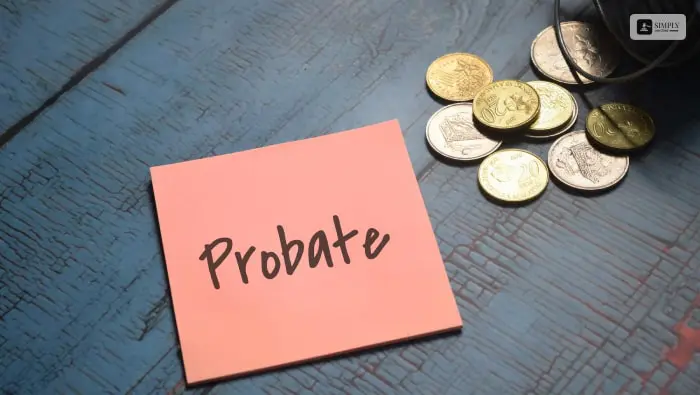
Probate is the legal process through which the distribution of a deceased individual’s assets and debts is carried out. It is a complex and time-consuming process that includes various court procedures, documents, and fees.
In this article, we will be discussing the types of probate and their functions for wills and estates.
Types Of Probate

There are a variety of probates that are available in terms of real estate law. Some of the types of probate are mentioned below:
Formal Probate
Formal probate is the most common type of probate and requires supervision from the court throughout the whole process. The court tends to oversee the executor’s actions and provides approval for the distribution of all kinds of assets.
During the process of formal probate, the administrator is mandated to file a petition with the court and provide notice to all the interested parties, which includes creditors and beneficiaries. Then the court appoints a personal representative for the management of the estate and to ensure all debts and taxes are paid.
The personal representative is also required to file regular reports with the court and acquire approval from the court before the distribution of the assets of the deceased.
Informal Probate
Informal probate, also known as uncontested probate, is a simplified and affordable process compared to formal probate. Informal probate is a simplified and streamlined process for handling the distribution of a deceased person’s assets and estate without the need for a formal court proceeding. It’s often used when the deceased person’s estate is relatively small, straightforward, and doesn’t involve complex legal issues or disputes.
In an informal probate process, the estate’s executor (also known as a personal representative) submits the necessary documents and paperwork to the appropriate probate court.
These documents typically include the deceased person’s will (if one exists), a list of assets and debts, and other relevant information. The court reviews the submitted documents and, if everything is in order, grants approval for the distribution of the estate’s assets to the beneficiaries named in the will.
Supervised Probate
Supervised probate is a kind of probate that is also known as court-administered probate. This means in this probate, every stage of the probate requires approval and oversight from the court.
Due to this, the court will be required to oversee every action brought about by the probate’s administrator, which includes payment of debts and distribution of assets.
Supervised probate is usually required for the purpose when the distribution of the assets of the deceased has led to higher amounts of conflicts and disagreements among the beneficiaries and creditors.
Additionally, during a supervised probate, it is necessary that the court shall be appointing a personal representative to effectively manage the overall probate process. The personal representative shall require approval from the court before distributing the assets of the deceased.
Small Estate Probate
A small estate probate refers to a simplified and expedited probate process that is available for estates with relatively low values. Probate is the legal process that takes place after someone passes away to distribute their assets and settle their debts.
However, the complexity and duration of probate proceedings can vary depending on the size and complexity of the estate.
In many jurisdictions, there is a provision for small estate probate or simplified probate procedures. These procedures are designed to streamline the process for estates with limited assets, allowing for a quicker and less costly distribution of the deceased person’s property.
The exact criteria for qualifying as a small estate can vary by jurisdiction, but they generally involve estates that fall below a certain value threshold.
What Types Of Assets Are Subject To Probate?

The types of assets that are subject to probate can vary based on the jurisdiction’s laws and regulations, but generally, the following types of assets are often subject to probate:
Real Estate: Any real property owned solely by the deceased person, such as a house or land, is typically subject to probate.
Bank Accounts: Bank accounts held solely in the deceased person’s name are subject to probate. Joint accounts with rights of survivorship may bypass probate and automatically transfer to the surviving account holder.
Investment Accounts: Individual investment accounts, such as stocks, bonds, and mutual funds, held solely by the deceased person are typically subject to probate.
Personal Property: Personal belongings like furniture, jewellery, artwork, vehicles, and other valuable items are often subject to probate if there isn’t a clear beneficiary designation or ownership structure in place.
Business Interests: If the deceased person owned a sole proprietorship or a portion of a business without proper succession planning, their business interests may be subject to probate.
Intellectual Property: Intellectual property assets like copyrights, patents, and trademarks are subject to probate unless there’s a clear plan for transferring ownership outside of probate.
Life Insurance: Whole life insurance policies usually have designated beneficiaries who receive the proceeds directly, if no beneficiary is named or if the estate is named as the beneficiary, the policy proceeds might become part of the probate estate.
Retirement Accounts: Retirement accounts like IRAs or 401(k)s typically have designated beneficiaries who receive the assets directly. However, if no beneficiary is named, the account might be subject to probate.
Debts: Debts owed by the deceased person are also addressed in probate. The estate’s assets may be used to settle outstanding debts before distribution to beneficiaries.
It’s important to note that there are strategies to minimise the assets subject to probate. These strategies can include creating a living trust, joint ownership with rights of survivorship, naming beneficiaries on accounts, and establishing payable-on-death (POD) or transfer-on-death (TOD) designations for certain assets. The specific rules and regulations regarding probate can vary significantly depending on your jurisdiction, so it’s advisable to consult with legal professionals who specialise in estate planning and probate in your area.
Role Of Probate In Estate And Will Administration

Probate is a vital component within will and estate administration as it enables the deceased individual’s assets and debts to be properly accounted for and distributed. The probate court manages the process of gathering and managing the deceased person’s assets for the identification of the validity of their will. It also distributes assets to beneficiaries and heirs.
This legal procedure provides a degree of protection to all parties involved, which includes creditors and beneficiaries. This is done by ensuring that everyone’s rights are respected and supported.
It is important to understand that the process of probate can be lengthy and expensive depending on the complex matters associated with the estate or any conflict that might arise.
Moreover, it is also an important procedure that aids in ensuring that the wishes of a deceased are proceeded in a fair and equitable manner. During the probate process, the court will determine if there are any outstanding debts or taxes owed by the deceased.
These debts are required to be paid off before any assets can be distributed to heirs and beneficiaries. This, at times, leads to disputes between creditors and beneficiaries, as either might be of the notion that the other is entitled to a larger share of the estate.
Another vital part of probate is the determination of the heirs. In some situations, the deceased might not have a will or may have left unclear instructions regarding the distribution of their assets. In such situations, the probate court will determine the rightful heirs for the distribution of assets accordingly.
The process of probate plays a major role in ensuring that the wishes of the deceased are fulfilled, and assets are distributed in a fair and equitable manner. Due to this, it is crucial to hire an experienced probate lawyer to acquire guidance in the probate process.
In this context, let’s assume you are located in Las Vegas and seeking succession planning lawyers, for instance. Planning for the future of your business or estate is essential, and experienced succession planning lawyers in Las Vegas can guide you through every step. They help create tailored strategies to ensure a smooth transition, protect your assets, and uphold your legacy according to your wishes.
Final Thoughts
Now, you have a fair understanding of the ways probate plays a major role in the administration of wills and estates. It is advised that you take guidance from an experienced real estate lawyer for the purpose of executing the probate process properly.
Read More:


